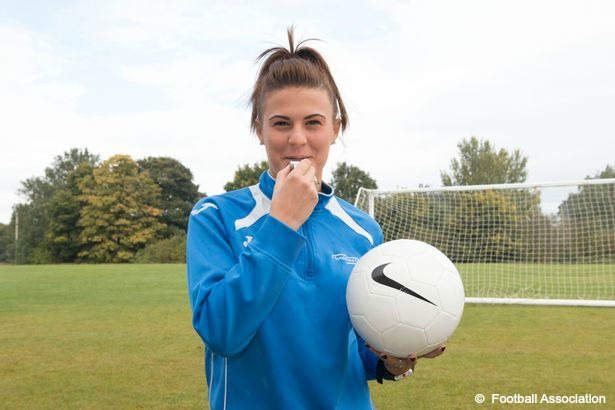
TOP female referee Lucy Oliver believes there will be a woman refereeing in the Premier League one day.
But she is convinced it will only happen when someone is good enough.
“There’s no doubt in my mind that we’ll see one,” the Newcastle-based official insisted.
“Sian Massey-Ellis has assisted in the Premier League for some years now so it can be achieved.
“We’ve got some fantastic girls coming through. There’s competition out there so, to be one of 16/17 operating on the elite league, it’s not something that’s going to be achieved overnight.
“When? You know, when they meet the fitness, laws of the game and the assessment requirements.”
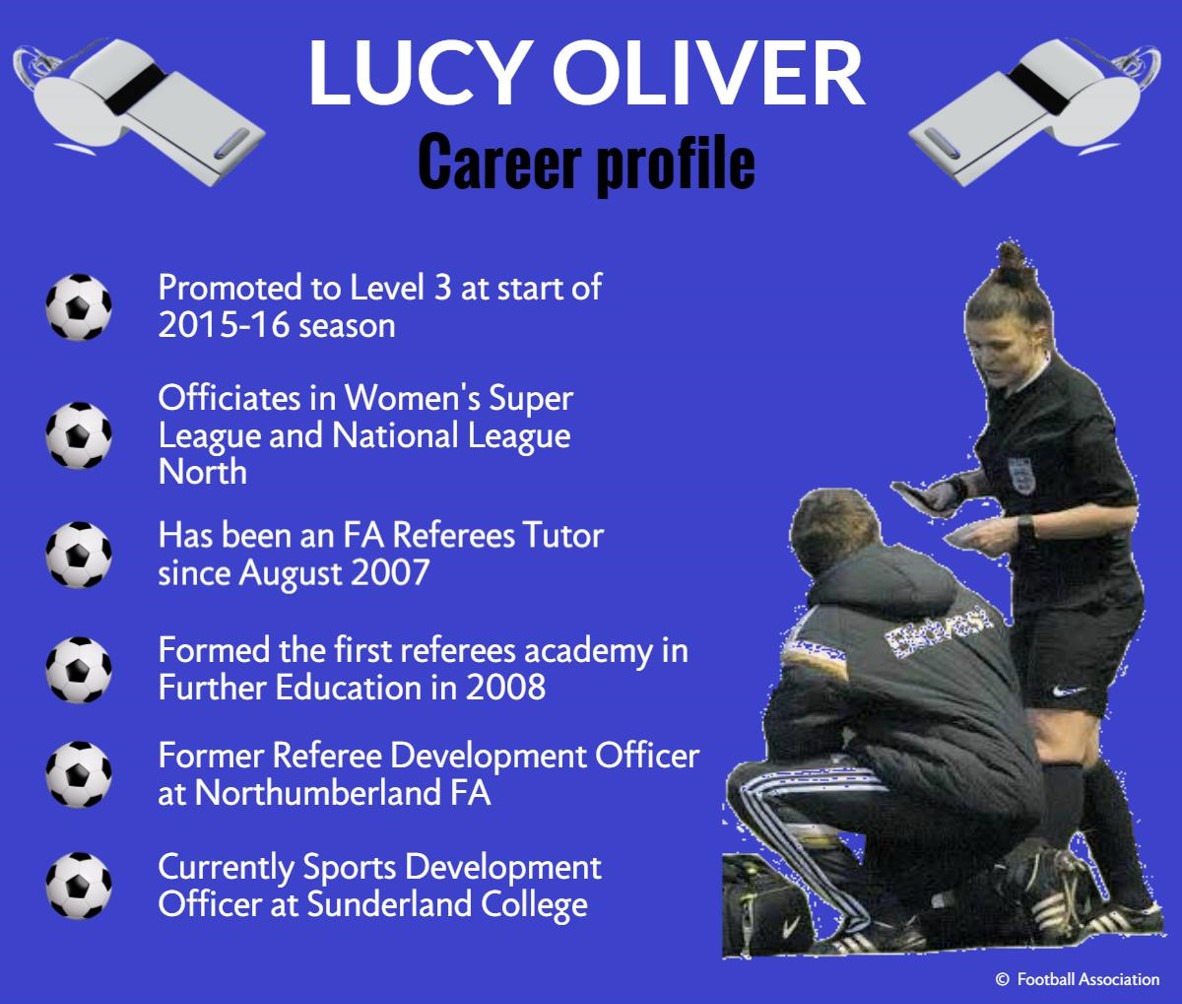
The sight of female officials at a football match is increasingly common yet still raises eyebrows, particularly in the men’s game where many think they stick out like the proverbial sore thumb.
Lucy currently runs the line in the National League North after being promoted to Level 3 last season – two away from officiating at elite level.
But the 26-year-old, who has been refereeing for 12 years, thinks people’s perception of officiating male football as a woman is far different from the reality.
“For me, as far as the players are concerned, my reality has always been that they don’t care if I’m fat, thin, tall, short, male or female, they want someone that’s going to referee games to the best of their abilities,” she said.
“As soon as you blow that whistle you are not ‘she’ or ‘he’ you are ‘ref’. That’s just the role you fit within and it’s what you’ve got to do.”
The talking point of women taking charge of men’s matches at a professional level has received more attention in recent times – ever since a high-profile sexism scandal erupted in 2011.
Sian Massey-Ellis was caught up in the middle of a media storm after Sky Sports pundits Richard Keys and Andy Gray were sacked for claiming she didn’t know the offside rule.
Lucy was a victim of discrimination herself in 2014 after being told by Northumberland County FA’s vice-president John Cummings, who was subsequently dismissed, that ‘a woman’s place is in the kitchen’.
However, she firmly believes it doesn’t matter as a match official should be judged on their ability – not their gender.
“I think the fitness and laws of the game tests and promotion criteria are there for a reason,” said Lucy, who has been married to Premier League whistler Michael Oliver for a year.
“If you’re good enough and meet the criteria then you should do it. If you don’t meet the criteria for whatever reason then no you shouldn’t [officiate in the men’s game].
“If you’re not up to scratch then they will remove you from lists, so I think all the time you meet those requirements, I don’t think there’s a debate to be had.”
Despite the aforementioned incidents, the profile of female refereeing is growing all the time.
It reached a high point a year ago when Amy Fearn led a team of women officials for the first Women’s FA Cup Final at Wembley, where Lucy will end her season as fourth official for this year’s showpiece on May 14.
But across the sporting world, it appears stereotypical attitudes towards females still exist, with controversial comments recently by Formula 1 boss Bernie Ecclestone that women drivers would ‘not be taken seriously’ adding fuel to the fire.
Lucy, nevertheless, feels the current state of football is ‘in a positive place’ and only people themselves can alter their outlook of female officials.
“When you look at the growth of the women’s game and the Women’s Super League, the numbers of females and males participating in the game, everything’s doing really well. People won’t like a referee for X, Y or Z – you can’t control that,” she said.
“People will always have perceptions – it’s not up to us to change that. They need to want to change that themselves. I don’t think it’s the kind of thing that needs world domination.”
The Football Association’s ‘fan zones’ at girls’ football festivals last year proved a massive hit with refereeing courses held as a direct result of hundreds of females aged 14 and above declaring an interest in refereeing – notably in the North East, where Lucy is based.
But the national uptake remains low, with women currently representing only five per cent of 26,000 referees registered with the FA.
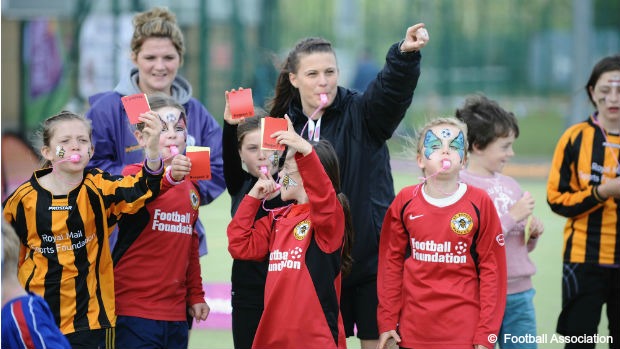
Lucy carried out ‘a fascinating project’ about the number of women referees for her Masters dissertation and is confident the landscape is becoming more of a level playing field with men.
“I think the number of women referees will continue to grow,” she suggested.
“I think a lot of it is about understanding the opportunities out there, not just for males but for females too, and understanding that if you want to be involved in football you don’t just have to play or coach – you can referee, there are media, medical and administration roles among others.”
Even though she referees at least one game every week throughout a typical season, Lucy believes there is always something to learn from every match and no such thing is perfection.
She said: “I guess it varies per person but I’ll always watch the highlights of the northern league and Evo-Stik teams I referee on Twitter because there’s stuff there I can learn about.
“I like going to watch non-league football because it’s relevant to me. It wouldn’t be worthwhile for me to try to learn how to referee a Football League game or how to learn a Premier League game because I’m not at that level.
“I think you get out what you put in but I don’t think there is such a thing as the perfect referee. I don’t think there’s such a thing as the perfect player either.”
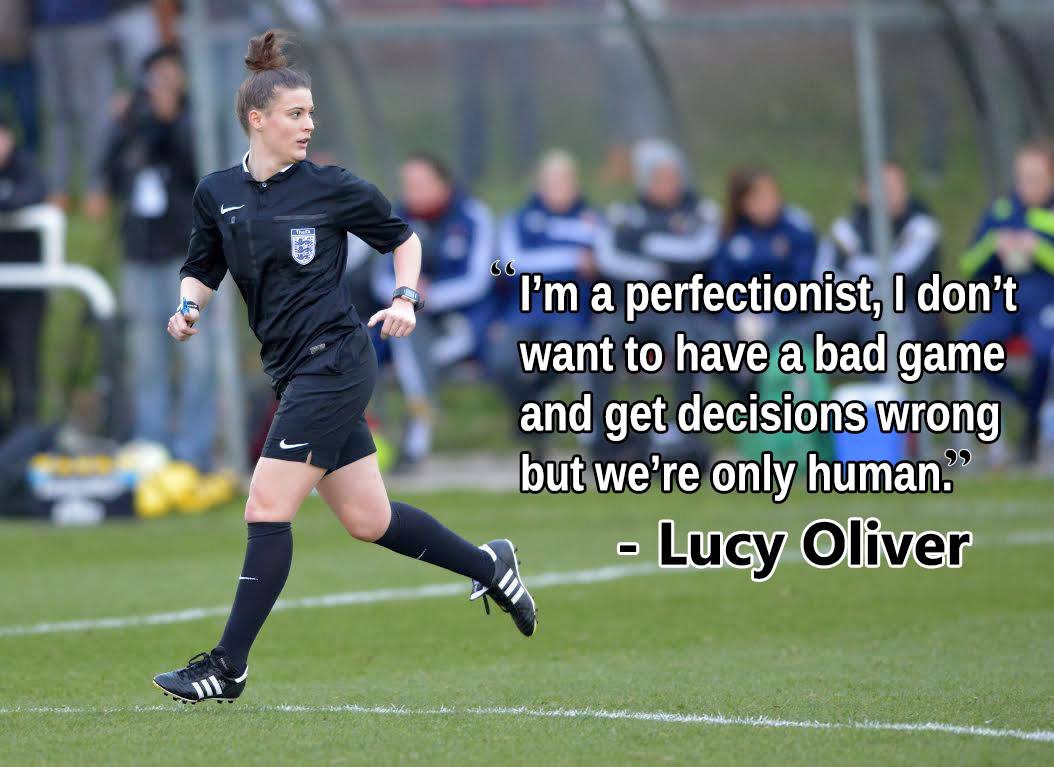
There are only five female Football League officials on the list of 345 referees and assistants this season but, although Lucy harbours ambitions to join them, she is keeping her feet firmly on the ground.
“Everyone’s got dreams. I’ll always work hard and if those dreams become a reality then you’ll find me somewhere on cloud nine but I can only do my best and it’s one step at a time for me at the moment,” she added.
Although she doesn’t see herself as a role model, Lucy continues to work tirelessly to set a shining example for young male and female officials to overcome fear and act as a reminder that gender is not a barrier to progress in refereeing.
Click on the image below to test your knowledge of referees in our quiz:
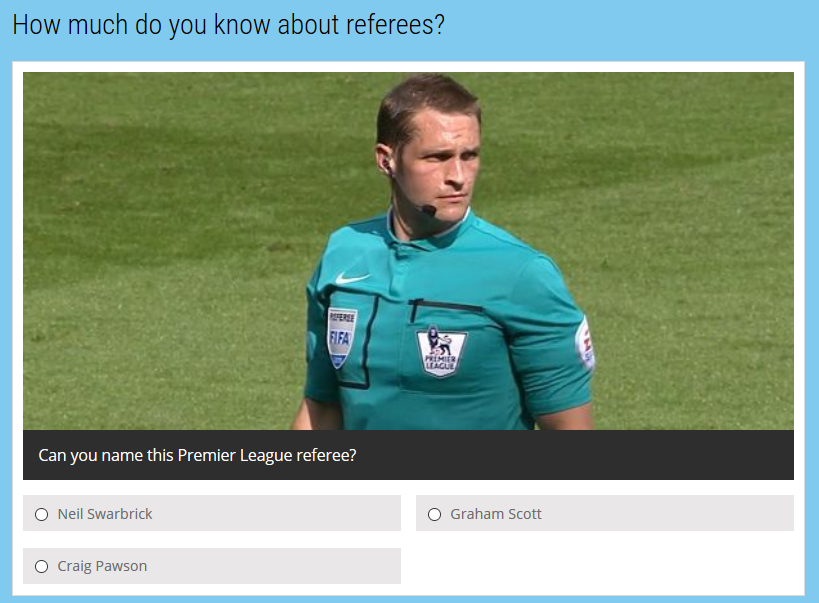














2 Comments